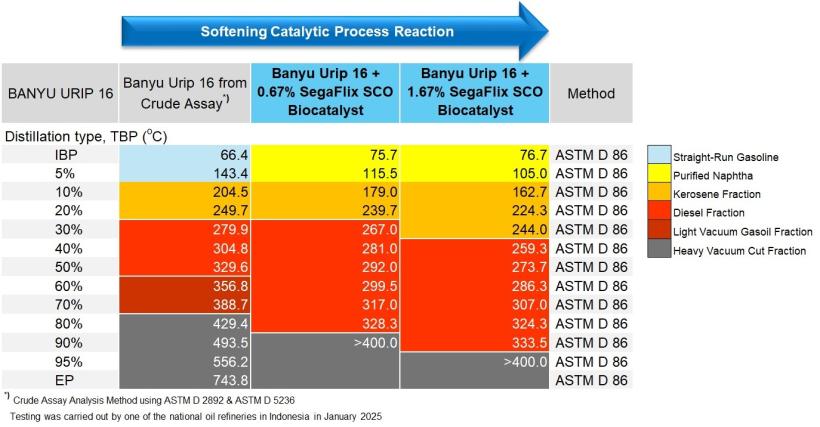SegaFlix SCO BioCatalyst
Synthetic Crude Oil (SCO) BioCatalyst refers to a biological or bioengineered catalyst used to enhance the conversion of unconventional hydrocarbon resources (e.g., oil sands, bitumen, or other heavy hydrocarbons) into synthetic crude oil. This approach leverages biotechnology to improve efficiency and reduce the environmental impact of traditional upgrading methods.
SCO BioCatalysts rely on enzymes to facilitate chemical reactions. These catalysts are designed to break down heavy hydrocarbons into lighter, more valuable forms, similar to traditional chemical or thermal upgrading methods. For example, they assist in cracking, which involves breaking down large hydrocarbon molecules into smaller, lighter ones, akin to those found in conventional crude oil. Additionally, they play a role in upgrading, where the hydrogen-to-carbon ratio is improved to make the crude oil less viscous and easier to refine.
SCO BioCatalysts offer significant environmental benefits. They produce fewer greenhouse gas emissions compared to thermal upgrading processes such as coking or hydrocracking. Additionally, they require less energy since biological reactions typically occur at milder temperatures and pressures. The process also reduces reliance on harsh chemicals, making it a more sustainable alternative.
In terms of efficiency, these bio-catalysts enhance the yield of synthetic crude oil from heavy feedstocks. They also enable more precise reaction pathways, minimizing waste and reducing the production of unwanted byproducts.
Test Result
Synthetic crude oil Banyu Urip 16 (BANYUR16). The atmospheric cut increased from the previous 50% to 80% at a catalyst dosage of 0.67% and to 90% at a catalyst dosage of 1.67%
